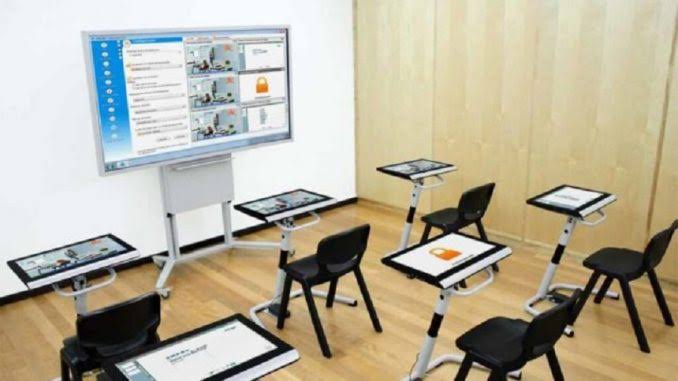The Federal Government has announced the revocation of a contract for the construction of a smart school in Kebbi State, citing delays and inefficiencies. The contract has been re-awarded to a new contractor, according to the Minister of State for Education, Dr. Yusuf Sununu. A similar revocation process is also underway for the smart school project in Bayelsa State.
Dr. Sununu made this disclosure during a tour of the FCT Smart School in Karshi, Abuja, where he was accompanied by the Minister of Education, Prof. Tahir Mamman.
“The two schools that are lagging—those in Kebbi State and Bayelsa—are being addressed. The Kebbi project has already been re-awarded, and Bayelsa is undergoing due process for revocation and re-award, ensuring that no state is left behind in implementing smart school technology in education,” Sununu stated.
He also expressed concern over some states’ failure to provide the federal government with the required 75 teachers for training, even after their smart schools had been completed and handed over. Sununu urged other states to follow the example of the FCT administration, which is actively expanding the scope of its smart school by providing roads, hostel accommodations, and a full complement of staff.
The Minister also called on traditional rulers and residents of Karshi to ensure the security of the smart school facilities, emphasizing that the local community would be the primary beneficiaries of these services.
The Smart School initiative, funded by the Universal Basic Education Commission (UBEC) in collaboration with the Korea International Cooperation Agency (KOICA), aims to enhance teachers’ capacity to develop and use ICT content, improving access to quality teaching and learning materials.
Minister of Education Prof. Tahir Mamman highlighted that Nigeria’s education system is increasingly focused on technology-enhanced learning to foster students’ creativity and critical thinking.
“This is the kind of institution we aspire to establish nationwide—one that integrates personal learning and technology from the earliest stages, making education interactive and innovative from kindergarten through to the university level,” Mamman said.
He encouraged the pioneer staff of the FCT Smart School to take their roles seriously, noting that the institution would serve as a training ground for teachers and other educational institutions.
Prof. Mamman reiterated the government’s plan to establish one smart school in each state across the federation. Currently, 26 smart schools are operational, with construction ongoing in other states.
“This initiative is part of the government’s legacy, aimed at creating a digitalized school system that trains pupils in the use of technology from a young age,” Mamman added.
The Minister further emphasized that the curriculum at these smart schools would be tailored to the Nigerian context, combining conventional and vocational education to equip students with practical skills.
Addressing concerns about the security of the facility in Karshi, the Minister assured that the government is aware of the security challenges and has implemented robust measures, including deploying both armed and unarmed security personnel, and forging partnerships with host communities to ensure the safety of the smart schools.
Prof. Mamman also revealed that over 11,000 Almajiri children have been identified in the FCT and will be enrolled in different schools across the country by September.
To ensure the security of these institutions, the Minister of State for Education added, “We have armed police officers on the ground, expect more civil defense personnel, and are working closely with community vigilantes to guarantee the safety of our schools.”
